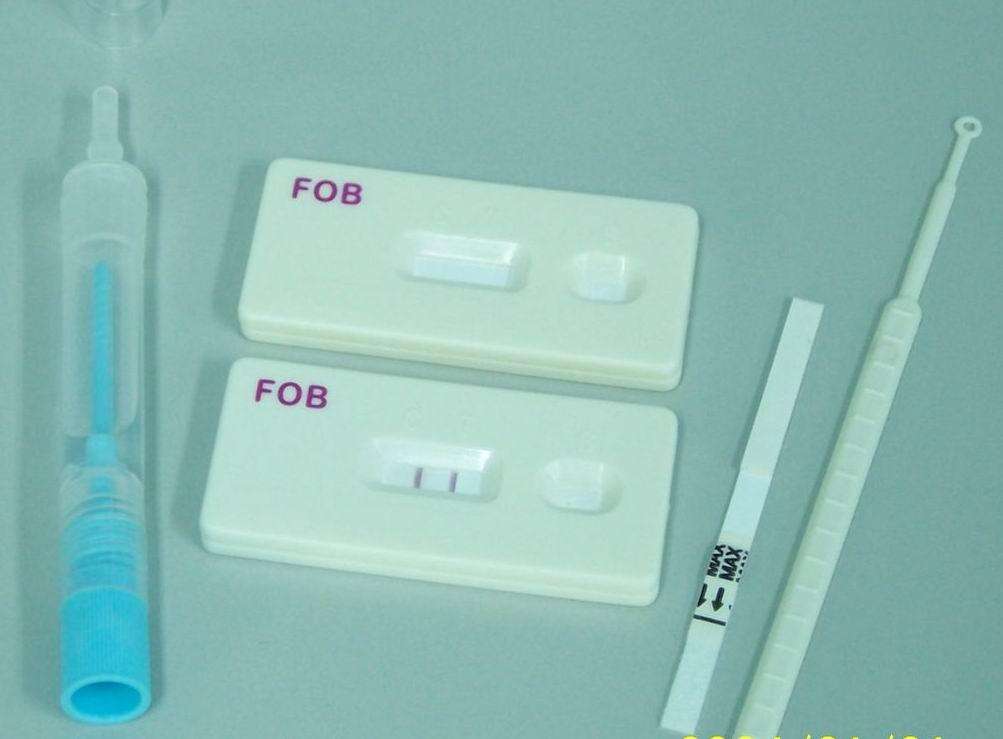
In one of the most comprehensive studies on colorectal cancer screening, researchers have found that regular use of the fecal immunochemical test significantly reduces the risk of dying from the condition.
Published in JAMA Network Open, the study concludes that completing one or more fecal immunochemical test screenings lowers colorectal cancer mortality by 33 per cent, with the highest observed for left colon and rectal cancers, where mortality was reduced by 42 per cent.
Fecal immunochemical test (FIT) is a non-invasive screening designed to detect hidden blood in the stool, an early warning sign of colorectal cancer. Fecal immunochemical test is especially valuable because it can be completed at home, bypassing the need for invasive screening procedures like colonoscopies.
According to Dr Chyke A. Doubeni, the study’s lead author, fecal immunochemical test offers a distinct advantage over older tests like the guaiac-based fecal occult blood test (g-FOBT). “Fecal immunochemical test can detect blood from cancers and large polyps with fewer false positives, making it an effective and practical option for regular screening.”
He asserted that its accuracy stems from its ability to specifically detect human hemoglobin in the lower gastrointestinal tract.
The study also highlights that fecal immunochemical testing requires follow-up procedures, such as colonoscopy, if the test result is positive. This ensures that any detected abnormalities are promptly addressed.
The study notes that timely follow-up significantly increases the chances of detecting colorectal cancer early, which is when treatment is most effective.
Dr Douglas Corley, another researcher on the study, emphasised that fecal immunochemical test screening is beneficial because it encourages higher participation rates. “Since the test is simple, many individuals are more likely to complete it unlike when compared to colonoscopy.” He said
“Annual or biennial fecal immunochemical test screening has been shown to reduce colorectal cancer mortality across various population groups,” Corley added.
The researchers analysed data from over 10,000 individuals across two large health systems in the U.S., from 2011 to 2017. The team found that fecal immunochemical test screening was especially effective among non-Hispanic Asians and non-Hispanic Blacks, with reductions in mortality of 63 per cent and 42 per cent, respectively. Non-Hispanic Whites also saw a significant 29 per cent decrease in deaths resulting in colorectal cancer.
“This study provides robust evidence that supports fecal immunochemical test screening as an effective method to prevent colorectal cancer deaths,” Dr Doubeni noted
Funded by the National Cancer Institute, the research followed a diverse population, confirming that the fecal immunochemical test screening is beneficial to all racial and ethnic groups.
While the study showed significant results for cancers in the left colon and rectum, the effectiveness of fecal immunochemical test in detecting right colon cancers was less pronounced, with no statistically significant reduction in mortality. Researchers noted that differences in tumour characteristics and test sensitivity might explain the lower impact of fecal immunochemical test in the right colon.
The findings emphasise how crucial faecal immunochemical testing is to population-based screening programmes, especially in areas with a diverse population in terms of socioeconomic status and race.
The researchers emphasised the need for follow-up colonoscopies after positive fecal immunochemical test results, as timely intervention is critical to improving outcomes.
Although the study presents encouraging results, it recognises certain limitations. These include difficulties in accurately measuring the effects of repeated screenings and the possibility that lifestyle factors, such as diet or exercise, may have influenced the findings. Despite these limitations, the study strongly endorses the ongoing use of fecal immunochemical test as a diagnostic method in colorectal cancer screening programmes.
The study calls for governing bodies and healthcare providers to improve access to fecal immunochemical test screening, particularly in undeveloped regions and high-risk populations, to further reduce the global burden of colorectal cancer.










